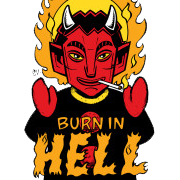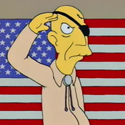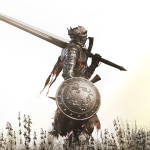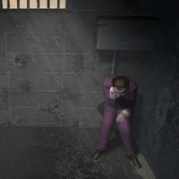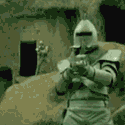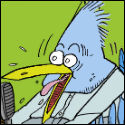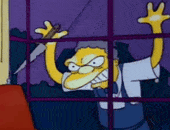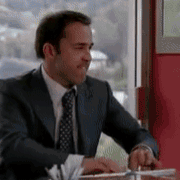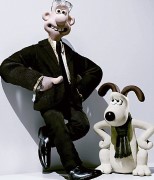|
I really wish only the second half of the movie had been done as a oner. The first half has all kinds of logistic issues in being shot that way that make the journey feel overstuffed, like going from one town to another in an open-world videogame, but the second half of the movie functions on a really interesting dream logic that well represented the perspective of someone who is exhausted and probably concussed going through a traumatic and Sisyphean quest. As it stands, it feels like Mendes did the whole movie that way just to say that he did instead of thinking through the way the oner itself functions as a way to convey meaning through contrast. It's uncharitable to call it a stunt--the movie's too good for that, for one--but I spent so much time in the first half thinking about this as moviemaking instead of a movie, and the characters weren't allowed downtime, boredom, the actual 6 hours of travel that we were told the journey would take in the beginning, a sense of scope, etc.
|
|
|
|

|
| # ? Apr 26, 2024 07:54 |
|
heckyeahpathy posted:I really wish only the second half of the movie had been done as a oner. The first half has all kinds of logistic issues in being shot that way that make the journey feel overstuffed, like going from one town to another in an open-world videogame, but the second half of the movie functions on a really interesting dream logic that well represented the perspective of someone who is exhausted and probably concussed going through a traumatic and Sisyphean quest.
|
|
|
|
Heroism is definitely a concern of the film, but I think it’s interesting that Scofield is a hero because he’s trying to stop (or at least delay) violence and death. He questions why he’s on this mission, partly because he doesn’t want to be there, but also (this is I think more implicit) because basically anyone would have worked. Any other soldier at the time is as heroic as him; they’re all massively capable of following orders. That’s why they’ve died in the thousands by the day. They’re literally going “above and beyond” into almost certain death. The nature of the conflict and part of what made WW1 so terrible is that it eradicated heroism; there’s no opportunity for valor in going over a hill and running at a wall of steel. It pretty much broke the back of that kind of vainglorious sentiment for nearly twenty years.
|
|
|
|
This was a good film. It was a bit over-the-top or hammy in a few places, but, it was somewhat interesting. I'm a little concerned that the whole point was to stop the forces who moved right up to this line from invading to avoid the casualties. They ended up right the gently caress there anyways getting shelled but at the end they played that as yeah eh whatever back to the lead I don't mind the film otherwise and it was alright. Not 5/5 but alright.
|
|
|
|
Since this movie has two game of throne actors, I couldn’t help but think of this after I left the movie. https://www.youtube.com/watch?v=nEDKVNoE2ws
|
|
|
|
I love how the entire part from the sniper confrontation to the forest meeting feels like a trip into and back out of the underworld. That section definitely functions with at least mythological logic, if not outright dream logic. Partycat posted:This was a good film. It was a bit over-the-top or hammy in a few places, but, it was somewhat interesting. I'm a little concerned that the whole point was to stop the forces who moved right up to this line from invading to avoid the casualties. They ended up right the gently caress there anyways getting shelled but at the end they played that as yeah eh whatever back to the lead Getting shelled in trenches is way better than getting shelled in the open. The whole reason the war moved to trenches is that they couldn't withstand artillery in the open. During the Battles of the Frontiers in 1914, before the trench lines were set up, both sides were taking about triple the casualty rate compared to the majority of the war when everyone had trenches.
|
|
|
|
There's one character which I think has been very briefly touched on but not properly identified. And it's an absolutely integral part to the entire movie. I'll spoiler the rest, if you haven't seen it read the below after and tell me if it makes sense. And if you have seen it, well, tell me if it makes sense! There's a narrative here in the UK that WW1 was "lions led by donkeys". This is generally meant to mean that the generals/politicians were incompetent, were failing to adapt their tactics to modern warfare etc. This is largely seen as problematic - the fact that they ordered trench warfare was a reaction to the change in warfare; plus several hundred Allied generals were killed on the front lines over the course of the war, and many of them spearheaded technological changes such as tanks, aircraft, rolling artillery barrages and so on (as well as the less 'glamourous' things like trench periscopes, tracer bullets and so on). But whether the generals were donkeys or not isn't the point - the point is, how far down the chain of command did the donkeys becomes the lions? The career path for a professional officer in the British Army was pretty straightforward at the time (pre-war). Britain had a deeply entrenched (hehe) class system and the opportunities to become an officer were largely limited to the aristocracy, the landed gentry and people who went to the 'right school' and had a bit of cash. Or, in modern terms, 'the upper middle classes'. These officers were expected to show the quintessential British 'stiff upper lip'; always look like you know what you're doing, especially when you don't, and a sort of upper-crust aloofness was essential to this. Then the war kicked off and the British Army - which had always been tiny in comparison to the French and German peacetime armies - had to expand rapidly. Private soldiers were easy to find as they volunteered in their millions; junior NCOs could be found from anyone that had a little bit of experience or the slightest whiff of aptitude. Senior NCOs were largely appointed from the junior NCO ranks, reservists or someone who went to 'the right school but not quite right enough to be an officer'. And that brings us neatly onto the officers. The supply of reserve officers was extremely limited - most had been shunted into the reserves in peacetime for being too old, harbouring injuries or just treading water until they could get their pensions. So the Army turned to their old trusted friends, 'the right schools' (which in this context means universities). There were stories of entire classes at the traditional universities (Oxford, Camridge) etc marching off together to sign up; and instantly being sent to be trained as infantry/cavalry officers, with absolutely no consideration to their aptitude. They were simply 'the right sort'. Which brings us to the character: the officers themselves. Blake and Schofield have very little interaction with ordinary soldiers throughout their adventure - with the exception of Schofields journey in the lorry they're essentially just extras, at least until the singing in the forest. The first officer we meet is General Erinmore (Colin Firth). A slightly aloof but perhaps sympathetic character, he's ordering two soldiers to their probable deaths but for the greater good. Putting aside why a General, who is in charge of strategic decisions, is making an operational one (tactical, at a push), he simply considers it a decision. It's devoid of emotion. Stiff upper lip and all that. There are other officers present in that scene, but again it's all very businesslike. You've been given your job, off you go. The next officer we meet is Andrew Scotts character, Lieutenant Leslie. Arguably one of the more interesting characters for me, largely because he has lost his stiff upper lipness (if he ever had it?), shown by his casual berating of his men and the almost friendly way he speaks to Schofield and Blake. Whereas Erinmore was probably a professional officer, Leslie strikes me as someone who was just finishing up university but now had to partake in all this bullshit and was going to try and keep himself and as many of his men as possible alive so they could eventually go home. But still having to think of the bigger picture, because he's British and from 'the right school' and all that. Then we meet Mark Strong in the guise of Captain Smith. It didn't take me long for him to remind me of Captain Miller from SPR; an extremely capable but humble officer, I'd wager he was also a teacher of some sort before the war, but now found himself leading his men almost as a father and teacher. His comments to Schofield to "make sure there are witnesses" are particularly telling; he knew that an infantry Colonel was likely to be a professional soldier and bound by his stiff upper lipness rather than any compassion for either his men or the strategic situation. Once Schofield has reached the Dorsets he is stopped in their trenches by a Lieutenant (unnamed) who has a bit of a shouting match with him about what he's doing there. There was absolutely no point to this argument; a Lance-Corporal carrying orders from a General would have simply handed them over to an officer when told to do so, who would have sent him directly to either their commanding officer or the company/batallion executive officer. But what it did show is that the officer himself was on the verge of panic, even though he knew that under absolutey no circumstances he could show that panic to the men under his command. So he shouted at Schofield for a bit before realising that maybe this was legit and could save his skin, and sent him down the line to the CO. Then we meet the penultimate penultimate officer, whose name I don't know but can ony describe as the best extra since the pilot that saluted Bill Pullmans speech in Independence Day: the sobbing Lieutenant (presumably), whistle in mouth, ready to send his men to their almost certain deaths along with himself. He barely gets a glance from Schofield; there's only one thing he can do for this man and his situation and that's get to the CO. Which brings us on to Sherlock himself, Benedict Cumberbatch's Colonel Mackenzie. Initially he doesn't want to listen to this rude little lance corporal scoundrel who has dared to charge into his dug out and start shouting something about orders. He, as Captain Smith said earlier, is probably quite looking forward to this fun little victory which won't make the tiniest bit of difference on a strategic level but will get him a bit of fame and fortune and some stories to tell at whatever god-forsaken private social club people like this hang out in when they're not sending teenagers to their slaughter. But his boss told him not to do it, so a bit of stiff upper lipness and he calls it off. The way in which he calls it off is interesting as well - he simply turns to a subordinate, gives an order and that's it, it's done. I was actually expecting that order to not get through and for the next wave to still be sent over the top, but that wouldn't have been Mackenzies fault but the fault of whichever hapless assistant couldn't run fast enough. And lastly we meet Richard Madden as Lieutenant Blake. An actual human - probably someone who, as I said earlier, was a university student who suddenly had to become an infantry officer and, as many of them did in real life, proved to be perfectly adept at it. But still human. He actually portrays an emotion of sadness; the others portray resignation, whether its "you're probably hosed" (Firth), "I'm probably hosed" (Scott) or "we're probably hosed" (the unnamed Lieutenant). And that pretty much completes the story; you might not be hosed, but someone along the line is definitely hosed. I didn't rate this movie at first but the more I think about it the more it's growing on me; Schofield and Blake weren't the characters we were meant to be watching, they were just the vehicle so we could meet the characters along the way. The woman in the basement, the soldiers in the lorry, they were part of that journey too.
|
|
|
|
GoGoGadgetChris posted:That's an... interesting read on the guy who traded his medal for wine and talked about how stupid everything about the war & their mission was (and who ultimately failed at his mission). To further elaborate, i only mention the hero tale aspect because the soldiers we meet seem pretty flawless, never faltering, with limitless physical ability. I heard that the tale was based on "Sam's grandfather delivered a message once" which morphed into what we have now. Not a criticism, I loved the film, I just wasn't emotionally invested as much due to the fantastical nature of the story. That being said, I think it's great to have a WW1 film that isn't super dry like They Shall Not Grow Old, or overly moralizing like Paths of Glory. (I dig both of those also)
|
|
|
|
duckmaster posted:There's one character which I think has been very briefly touched on but not properly identified. And it's an absolutely integral part to the entire movie. I'll spoiler the rest, if you haven't seen it read the below after and tell me if it makes sense. And if you have seen it, well, tell me if it makes sense! The film and particularly Mackenzie's dialogue don't bear this out though. Mark Strong's comment about witnesses (and Firth's initial description of the situation) imply that he will be an ignorant buffoon sending his men into certain death for a chance at personal glory. That creates a dramatic tension which is resolved when Mackenzie states that his motivations were instead to take advantage of what he saw as an opportunity to use his initiative to bring the campaign closer to its end. It's the reconnaissance photos, rather than the order itself, which leads to him calling the attack off decisively; he even states a few moments later that he has no faith in the orders from the generals ("tomorrow, attack at dawn") but thought he had a chance to make a meaningful difference in the war in such a way that might lead to its end sooner, if even in a small way.
|
|
|
|
The read I had while watching the movie was that the whole point of the mission was that it wasn't really intended to succeed. That sending these two guys is really about the general discharging his responsibility for a fuckup. "Well I told them not to attack," he could then claim, and that's the end of the matter. In the same way, I didn't see the "make sure there are witnesses" as being an astute read of how to be persuasive. Rather I thought of it as another guy who had given up on the idea of saving these men, instead saying "well, at least you can gather evidence for Mackenzie's court martial when all his guys die". It wouldn't make sense to send Schofield on alone if he thought he had a real chance. I think Schofield definitely was a hero though, and I don't know why people think their mission failed. The fact Lt Blake survived is an indication that even the first wave, they managed to save some (probably most?) of them. Schofield mocks Blake on the idea of getting a medal but his final conclusion is that Blake was a good man. Fangz fucked around with this message at 12:34 on Jan 20, 2020 |
|
|
|
If you ever feel like the Germans soldiers are the badguys in WWI, here's a fun fact: the Germans did not rotate units through the front like the Allies did. A British or French soldier would have a couple weeks at the front, a couple weeks at the rear, and a week of leave. German soldiers were at the front for months on end. It's not surprising that they started surrendering en masse in 1918.
|
|
|
|
Fangz posted:The read I had while watching the movie was that the whole point of the mission was that it wasn't really intended to succeed. That sending these two guys is really about the general discharging his responsibility for a fuckup. "Well I told them not to attack," he could then claim, and that's the end of the matter. In the same way, I didn't see the "make sure there are witnesses" as being an astute read of how to be persuasive. Rather I thought of it as another guy who had given up on the idea of saving these men, instead saying "well, at least you can gather evidence for Mackenzie's court martial when all his guys die". It wouldn't make sense to send Schofield on alone if he thought he had a real chance. But then why would they go to the trouble of picking the man whose brother is likely to be killed if the mission fails (and therefore has that extra incentive to see it succeed)? General Erinmore is portrayed as knowledgable about this, including showing that he knows Lt Blake is the kind of officer to go over the top with his men in the first wave. I'm not sure if Mackenzie is supposed to have been ordered to attack by the generals and Schofield is carrying an order to rescind that, or if Mackenzie is attacking on his own initiative. I thought the latter, given the way Erinmore presents it, and the angst that Mackenzie has when he realises his plan is doomed.
|
|
|
|
oxford_town posted:But then why would they go to the trouble of picking the man whose brother is likely to be killed if the mission fails (and therefore has that extra incentive to see it succeed)? General Erinmore is portrayed as knowledgable about this, including showing that he knows Lt Blake is the kind of officer to go over the top with his men in the first wave. I don't really suppose Erinmore knew Blake or compared the lists of the 2nd Devons and this unit to find that commonality though. It seems most likely that someone else (who knew Blake personally) mentioned it to the general in passing and he decided on it as a spur of the moment thing.
|
|
|
|
Guys guys I don't think this was truly a one shot movie
|
|
|
|
Video on the one shot technique: https://www.youtube.com/watch?v=kMBnvz-dEXw Interesting tidbit at the end is that when Schofield is making his run outside the trench during the charge, he bumps into two extras by mistake, knocking them down. They liked it and kept it in the movie. I read somewhere else that people bumping into the two main characters in the first trench scene was also not scripted.
|
|
|
|
Sand Monster posted:Video on the one shot technique: https://www.youtube.com/watch?v=kMBnvz-dEXw You mean the "he's an injured man" dialog? Was that the first take, or did they reshoot it?
|
|
|
|
Finally saw this in theatre for the first time and am absolutely blown away. Where to even begin? This was loving amazing. Genuinely one of the best made films I have ever seen. I need more time to digest and a second viewing to really go through with a review, but some early bullet points - I love how you start off the movie thinking the dark haired chap will be the star, and will of course survive no matter what. Him dying before the second act really started was genuinely surprisingly. Something that is incredibly rare in cinema today -The score is loving fantastic - Features some of the most beautiful shots I have ever seen in cinema. When he enters the city in flames and ruin, with the flares lighting up the sky, is breathtaking - The sheer amount of technical skill and craft involved in presenting the story in this style - I love how they refuse to give you the information the light haired chap's back story till the very end of the movie, when you get to piece together the rest of the movie and the incredible courage shown by him, persisting to go forward in the face of so much peril. The story refuses to go cheap and reveal his wife and two kids when he confronts the lady in the basement with the baby. They could have given you this backstory in the first 5 minutes for cheap emotions. I love how they didn't reveal more about why he was questioning everything and triyng to be more careful after the mission is first presented. 5/5 stars. An absolute must see. The best movie of 2019 and in my top 5 if not best movie of the 2010s.
|
|
|
|
Also please, please tell me there was a full documentary crew there capturing the making of this movie. I want 90 minutes of how the shots were setup, please!
|
|
|
|
This was a masterclass in cinema. I've never before thought of how beautiful a desolate landscape could be shot, and the abandoned town illuminated by flares is one of the most jaw-droppingly stunning pieces of cinematography I've ever seen. The ebb and flow of tension totally throttled my anxiety. I find horror movie jump scares predictable but this movie got me several times. I really didn't expect the performances to be as good as they were. George Mackay honestly should have been in the award circuit. Also Blake seamlessly turning white as a ghost after he got stabbed? How the gently caress? But you know what I appreciated most? The dramatic timing of the rats.
|
|
|
|
Have you seen Assassination of Jesse James? It’s another Deakins movie that makes desolate emptiness just incredibly beautiful. He’s a wizard at that. I suspect the Blake going pale as he dies aspect is a color correction thing, though. It wouldn’t be that difficult to isolate that actors’ skin tone and desaturate it in post, but yeah that’d be remarkable if that’s somehow practical in a continuous take.
|
|
|
|
I really loved this movie, the one shot technique felt well utilized and the video game comparison is apt. In some ways this movie reminded me a bit of the original Metro 2033 game which was probably one of my favorite single player experiences with the tension of the entire trip through the Metro. The other thing I think was strong about the movie is its small scale, yes it is a war movie however the stakes are pretty small. The two guys are sent off to deliver a message to stop a battalion from wandering into a trap. Sure if thousands will die, but that isn't really that much in the scheme of the Western Front. Failure won't lose the war or even really change the outcome. If I hadn't seen the trailer so saw scenes from later in the movie you honestly could have ended it with him getting shot in the head after crossing the bridge and it wouldn't have felt out of place. It also worked that he didn't completely save the day, the first wave still went over the top and hundreds of guys did die so while the mission was a success it was an imperfect one. IRT the Germans we see in the movie 1. The Pilot, I took that as he was panicking after being shot down and lit on fire, I mean it isn't unreasonable that he freaked out after everything that just happened and was acting on instinct/adrenaline. 2. The Sniper at the Bridge, a sentry whose job was to make sure the British didn't find out the town wasn't abandoned. So he was following orders to try to stop Schoenfeld and pick off a lone scout. When he got shot he realized he was dying and figured he might as well try to kill the guy who killed him especially once he heard footsteps. 3. The Germans in the town, I figure these guys were mostly drunk possibly either because they were left behind to make a suicidal stand in the surrounded town and lit the church on fire either on accident, or because... gently caress it?. This also would explain why none of them could shoot straight and kept tripping when chasing him, even the guy he surprised looked less than sober, even if he was less drunk than the other guy. Jack2142 fucked around with this message at 08:15 on Jan 23, 2020 |
|
|
|
I saw Roger Deakins at the ASC house. He's tall. Didn't say anything to him but he seemed chill the remaining strips of what I can only assume was a roast beef sandwich in catering seemed good
|
|
|
|
I saw this in a 4DX theatre and was disappointed I I didn't get any water spray, strobe lights during the flare sequence or smell-O-vision effects (is it too much to ask for the scent of gunpowder and burning flesh in my war movie?) otherwise the seat movement and cold air being blown in was surprisingly well integrated. The fog was distracting. Put me on the side of very technically impressed by the movie but felt a bit disconnected and not as immersed as I was supposed to be. Same thing happened with Hardcore Henry, a significantly worse movie but also one whose central gimmick didn't work on me. But one thing 1917 does really well with its premise is display the scope and scale of everything, especially the size of the trenches at the beginning and the charge at the end. And the night sequence with the flares is one of the best things Roger Deakins has done.
|
|
|
|
Just saw this, loving incredible.
|
|
|
|
Movie has its premiere next Thursday, booked imax screening, very excited.
|
|
|
|
Saw it last night. The movie didn't make me a feel a drat thing, apart from some shocks and revulsion (eg putting hand in corpse's chest). I thought that despite the technical wizardry and creativity on display it felt empty and calculated - ultimately, contrived. I also thought that it was implausible. If the mission is so important, why send only two men (instead of, say four pairs), but more to the point, why didn't they just drop the orders from an airplane? (I just did some research and they were doing this from 1914). I also thought it hit pretty much every trope about WW1 films squarely on the head. There are other WW1 films which manage to elicit much more emotion in me. This just felt tricksy.
|
|
|
|
therattle posted:If the mission is so important, why send only two men (instead of, say four pairs), but more to the point, why didn't they just drop the orders from an airplane? Smart rear end yet accurate answer: because that wouldn't have been a very exciting movie.
|
|
|
|
Why not just send the eagles to mordor and have them drop the ring
|
|
|
|
Sand Monster posted:Smart rear end yet accurate answer: because that wouldn't have been a very exciting movie. Sure sure. I get that. But having had that thought right at the beginning only added to the sense of contrivance. They could have said something about low cloud making flying impossible, although that would have made the airplane scene impossible. At least in LOTR Tolkien goes to the bother of generating some mythology around a Ring-bearer.
|
|
|
|
therattle posted:I also thought that it was implausible. therattle posted:If the mission is so important, why send only two men (instead of, say four pairs), but more to the point, why didn't they just drop the orders from an airplane? (I just did some research and they were doing this from 1914). https://prologue.blogs.archives.gov/2018/01/08/unsung-heroes-of-world-war-i-the-carrier-pigeons/
|
|
|
|
i really wish i saw this before it won the golden globe for best picture, which it absolutely does not deserve and i'll be even more upset if it wins the oscar. it's a neat trick and i have a ton of respect for the filmMAKING process, but it's jut not a very good/compelling/exciting film overall. i just kept looking for all the ways it was obvious that the film wasn't *actually* shot in one take. it's like this movie pushes the boundary of an "uncanny valley" for how long a single cut can be before you start noticing the editing vs what's actually happening in the story
|
|
|
|
fenix down posted:The plot is based on Sam Mendes' grandfather being charged with delivering a message. So while greatly exaggerated, not implausible. I know they used messengers but for something of such importance the method of communication seems pretty risky. As for research, I did very little. This was the first google result. http://www.iwm.org.uk/learning/resources/what-impact-did-the-first-world-war-have-on-aircraft-and-aerial-warfare quote:
|
|
|
|
The lost battalion in 1917 tried to use runners for communications multiple times, but those attempts all failed. Only a single carrier pigeon got through. As for aerial drop bags, it's explicitly stated that the commander will not stop the attack for a mere order. Only a copy of the recon photos can persuade him to stop. You can say that the general was unwilling to risk a copy of the photos, especially since they do not have total air dominance.
|
|
|
|
History question: about that Sikh soldier in the lorry, were colonial troops really integrated in the same units as the British?
|
|
|
|
Saw it last night. From a film-making perspective it's loving stunning. The camerawork, the lighting, the music and sound and the hidden editing was just incredible. But I can pinpoint the moment that the film lost all tension for me. In the first act, when they're in the German trench, and the rat sets off the tripwire? Our main dude was standing next to the mines when it went BANG. All that happened to him was that he got buried under some rocks. The barbed wire in the scene before that gave him more grief. This scene revealed the plot armour. This is what made it really freaking obvious to me that HE was gonna be the guy who survives no matter what. After that, any scene where he was in "danger" had no sense of threat to me because he absolutely should've been killed by those mines without question. We all know when you watch an action\war movie, that the main character is gonna live. But a good action\war movie will make you forget that plot armour or at the very least question it and give you this feeling like this character MIGHT die. The scene with the landmines destroyed that illusion for me Also, in WW1, the trenches were usually really close. As in only 100-200ish meters apart. In this, No Man's land went on for MILES. It always irks me when a movie has both a hyper-realistic presentation, but then doesn't fully commit to it. I wanted to like this movie a lot more than I did. I would recommend everybody check it out because it's so ridiculously well made, it's worth a watch. Also perhaps if you aren't that much of a stickler for details like I am, I would believe you could easily get drawn in and really enjoy it.
|
|
|
|
therattle posted:I know they used messengers but for something of such importance the method of communication seems pretty risky. H13 posted:Also, in WW1, the trenches were usually really close. As in only 100-200ish meters apart. In this, No Man's land went on for MILES. It always irks me when a movie has both a hyper-realistic presentation, but then doesn't fully commit to it.
|
|
|
|
Global Disorder posted:History question: about that Sikh soldier in the lorry, were colonial troops really integrated in the same units as the British? https://twitter.com/HannaFlint/status/1219940663548092417?s=20 guessing this is what prompted the question
|
|
|
|
Haven’t seen the movie so don’t know how it is portrayed, but colonial troops were mostly led by European (“white”, if you will) officers. Colonial troops brought a lot to the table during the war, and bemoaning their representation in a movie like this strikes me as dog whistling.
|
|
|
|
Global Disorder posted:History question: about that Sikh soldier in the lorry, were colonial troops really integrated in the same units as the British? Also Laurence Fox can gently caress right the gently caress off.
|
|
|
|

|
| # ? Apr 26, 2024 07:54 |
|
The question is whether Sikh troops would have been integrated with majority-white British units or put into segregated units, as black American troops were in WWII. From what I understand, troops from India did have their own units, but I guess it's not implausible that one Sikh would find his way into a different regiment through one circumstance for another.
|
|
|









